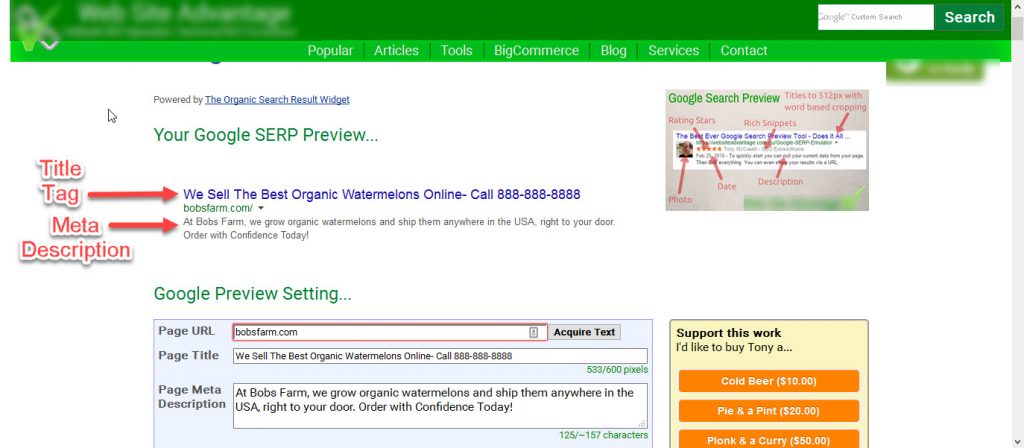SEO is short for “Search Engine Optimization”. When people say, SEO what they typically mean is the “free” or non paid, organic listings from Google (or other Search Engines). The paid ads, PPC (Pay For Click) would be considered SEM or (Search Engine Marketing) or paid search.
Let’s say that the internet is the library. You walk into a library and it’s not organized and you can’t find anything, you will probably leave. Or, you will ask the librarian for help. Well, no library would survive if it was unorganized and uncategorized. Before Google, the web was kind of an uncategorized mess. Google came in and started sorting and organizing the web. They do this by using their algorithm to read content (words) on the page and code or microdata.
Once they scan the website they figure out what the site and its individual pages or posts are about. Google they starts building an “idea” or theme around what the site and its pages and posts are about. They then display the content that is most related to the person who is searching for that answer. Just like when you go to a library and ask for a help finding something. If you keep asking for a certain book or to find info on an author, and the librarian keeps giving you bad directions or the wrong info, you will probably go to another library. Google is the same way. They want you to get your answer and then “terminate your search”. That way they solve your question, or problem, or helped you buy something. No need to visit another “Library”.
Ok Great- I Have Content On My Site And I’m Still Not #1
Yes, having content on your site is essential. But, everyone has content on their site. It’s really a lot more to getting top rankings than that. Over the last few years, “Content Marketing” has been the buzz in digital marketing as well as SEO. Since it is the popular thing to do these days, it seems that just about every website that is serious about increasing their visibility online is producing content. And that content can be images (look at Pinterest, they are almost all image based), video (YouTube) or actual words on a blog post.So with companies and agencies pumping out more content every day, how do you get your business to stand out in the space?
Ok, so you have heard my librarian analogy. Now its time for another one. Scenario- you walk into a party where your friend invited you. Only problem is, the friend who invited you is a serious “flake” and decided to “watch netflix and chill”.
So you are here all alone at this party. What do you do? Do you leave? Do you start talking to yourself out loud and see if anybody else will some how hear you (and not think that you are crazy) and want to listen and invite their friends over to listen to you? Or, do you go up to some people that look interesting, join in on an existing conversation and build off of that?
Well to be successful at parties, as well as online, it is still a popularity content. People want to talk with and be around people that they like. Google is the same way. If you are publishing content and no one is listening, then all you are doing is going to the party and talking, hoping that someone hears you. What You NEED TO DO, is go up and introduce yourself (introduce your content). Join conversations, don’t be shy.
What Is On Page SEO?
On Page SEO really has to do a lot with the content on your site. Making sure that your site has enough quality content is only part of it. You want to structure your content in such a way that it has industry best practices where it matters most. Title Tags- this is what shows up in Google Search As the Site or Pages Description. Make sure you optimize that not only for SEO Value But For Conversion as well. If you are selling Watermelons, and your domain is bobsfarm.com then your Title Tag Should Look something like this:
The meta description as depicted above is the description, and really should be used for conversion. We don’t place that much value behind making sure we get the exact match key word phrase you are trying to rank for in there. Make the buyer want to buy from this “Pitch”. H1, H2, and H3’s etc are all important in that they define what are topics basically. For Example the H1 In this Post is at the Top Of the Page it reads, “What Is SEO? How Does It Work? And Why Do I Need It?”. My H2 in this post is a paragraph or so down that starts off with, “Ok So…”. As you can see they are bold text and larger than the regular text we use in the regular post. Google Bot sees that it has a special designation and it helps the search engines know easier off the bat what the piece of content that follows it will be.
What About The Semantic Web? Yes Google understands semantic language and can pick up on themes of websites. Even if you do not have the “exact” keyword of phrase in an H1 or H2, but have something related, Google is able to determine relevant language. So, DON”T KEYWORD STUFF. Make your content and headers etc, attention grabbing for the reader, then write for the bots second.
Publish Great Content Then Promote The Heck Out Of It!
Yep, publish really highly engaging content with lots of great images (use markup data to help them understand what those pictures are of), for those of us that do not like to read and like to look at pretty pictures and graphs (there are alot of us). Once you publish that really juicy content piece, it does no one any good, if no one finds it. So, what do you do? You help people find it by telling people about it.
Outreach And Promotion-White Hat Link Building
The art of doing outreach, is a lost one on most agencies. Most would rather use other forms of blog networks or paid links. These are much easier and less time consuming than creating and developing a staff for manual out reach. When you promote your content on other people’s websites that have real readers, and people that will share the content on social media, you are going to win the SEO battle. Just keep duplicating it time and time again. The quality of links, and the traffic you obtain from those links are viewed by Google and they place more weight for rankings on these types, than paid link types.
Do I Need An SEO Company?
Well here is the thing, finding these people who have blogs and websites where you can guest post and network with is as easy as looking them up on Google. The real SEO comes later. Finding out if these websites have good quality links, (you don’t want to have your website associated with websites that are spammy or have devalued links) so checking the link quality as well as traffic associated with those websites are super important. SEO and content marketing companies, use tools to help determine if these sites have good quality metrics and if they are a place that will actually send real traffic.
Good SEO companies know how “keyword density” and “do follow” and “no follow” links all affect your SEO rankings. Building links the right way can have really huge upside for your brand.
Do I Have To Keep “DOING SEO”? Or Can I Fire My SEO When I Hit #1?
Yeah I hear this question a lot. I know what you are really asking. Do I have to keep investing money into this process once I’m #1? Well, have you ever played “King Of The Hill” in school? It’s a big game of that online. Everyone wants to be #1, and if they lose that spot, they will come back swinging. So, while you could probably stop for a few months, do you really want to lose all that momentum and possibly get beat and have to start the process up again? How about the people who come back to you as a trusted resource for valuable content? You think they will wonder what happened to you? They might just find another place to get their answers and buy from them.
How Does Social Media Affect SEO?
Social Signals are a ranking factor. Why? Because social media sites like Facebook, Twitter, Pinterest and others are highly trusted websites. When you have a post go “viral” on a website like Facebook, it will get tons of likes and shares. Those likes and shares all have “SEO value” because each time it gets shared and liked from people’s facebook pages (those pages all are coming from a highly trusted domain) and increases the trust factor for that page or post that was shared a bunch of times. Plus, the traffic of people clicking from facebook to the original website that shared it helps. Yes, traffic is a ranking factor as well.
Take Aways-
- Build Awesome, Compelling And Shareable Content.
- Promote It- Don’t Talk To Yourself At A Party
- Rinse and Repeat
Want To Work With Us? [button link=”https://mastermindseo.org/client-application” type=”big” newwindow=”yes”] Learn More[/button]




